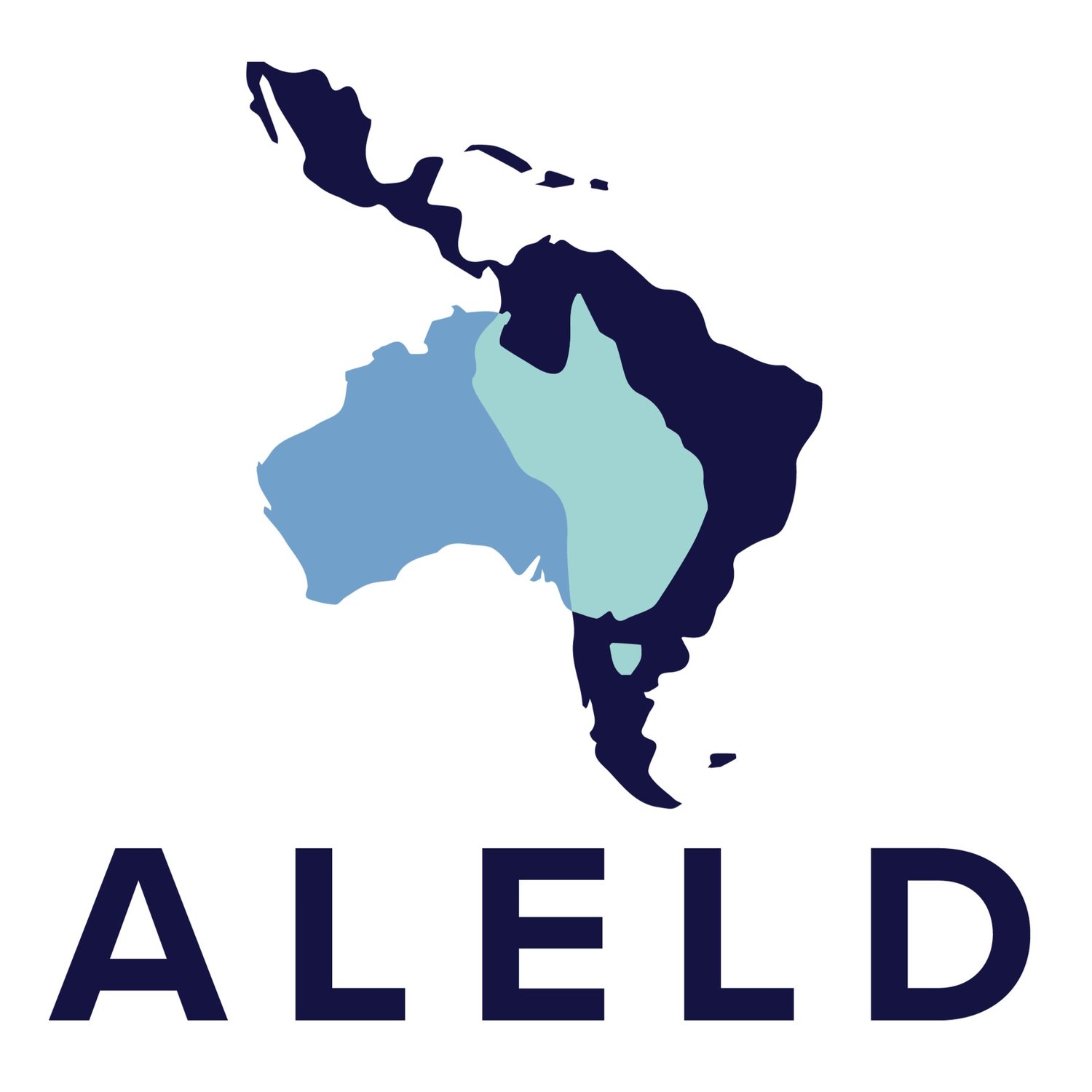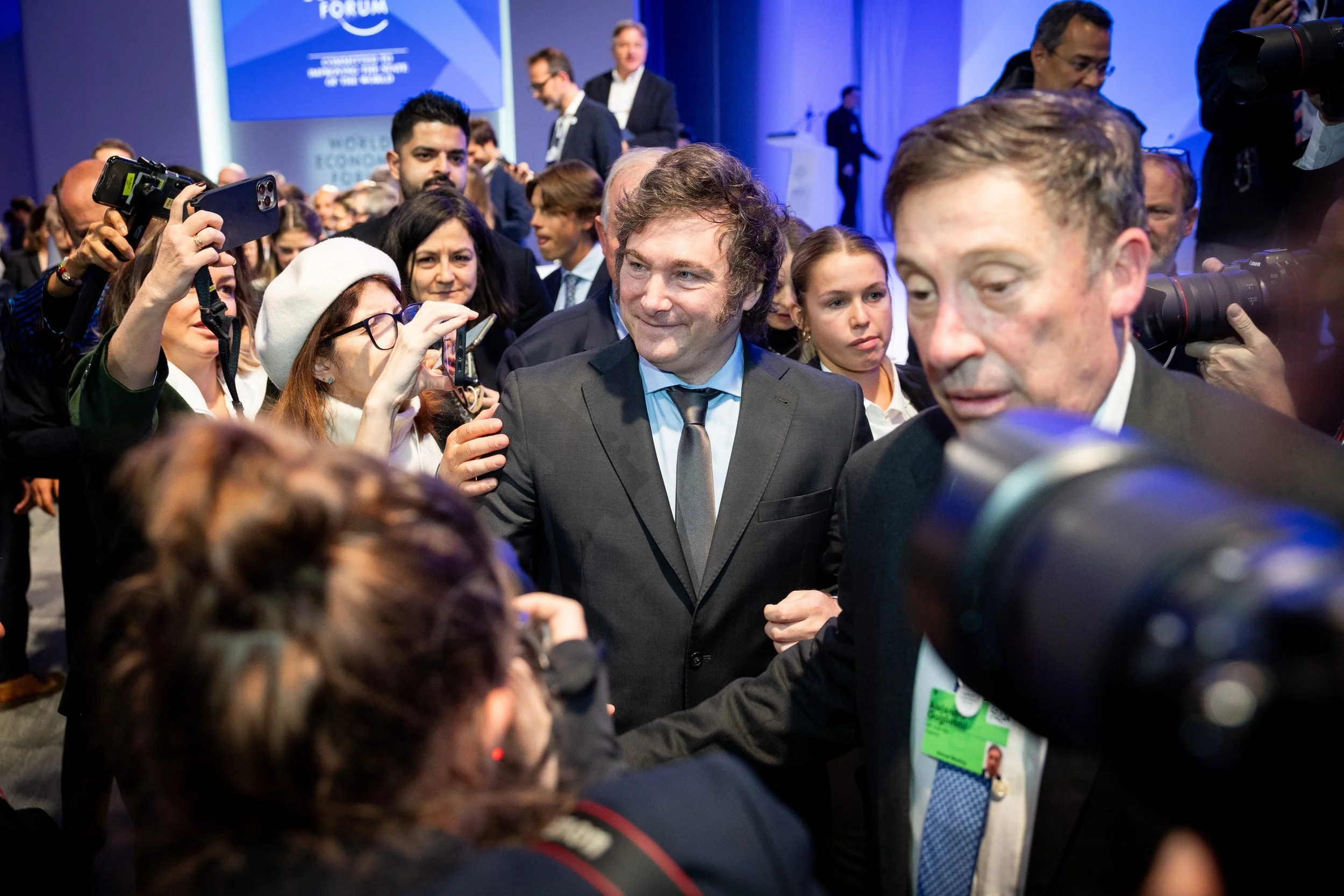Anarcho-Capitalism Meets the Pampas: Milei’s Disruptive Diplomacy and Argentina’s Global Rebrand
Elon Musk and President of Argentina, Javier Milei, speaking at the 2025 Conservative Political Action Conference (CPAC) at the Gaylord National Resort & Convention Centre in National Harbour, Maryland. Image credit: Gage Skidmore via Flickr
A recently circulated image on X (formerly Twitter), which seems almost too fictional to be real: Elon Musk, sunglasses on, holding a chainsaw in front of a cheering crowd. Beside him stands Argentina’s President Javier Milei, beaming, giving a thumbs-up. This striking moment occurred during the Conservative Political Action Conference (CPAC) in February 2025, where Milei presented Musk with a customised chainsaw engraved with his signature slogan, "¡Viva la libertad, carajo!" (Long live freedom, damn it!). Musk later shared the image on his X profile, further amplifying its reach and symbolism. What could easily pass for a scene from a dystopian graphic novel is, in fact, part of a real-world diplomatic spectacle, one that captures the essence of Argentina’s new foreign policy.
This image is not just meme-worthy; it is politically strategic. Since coming to office in November 2023, Milei has used performance, provocation, and personality-driven diplomacy to overhaul Argentina’s international posture. His so-called “anarcho-capitalist” vision doesn’t stop at domestic deregulation; it extends outward, recasting Argentina as a maverick player in global politics. Traditionally seen as a middle power with strong regional influence in Latin America but limited global influence, Argentina has often relied on multilateralism and alliances with fellow Global South nations to assert its voice internationally. Under Milei, however, this positioning is being disrupted, as he seeks to elevate Argentina’s profile through ideological realignment and confrontational rhetoric. From denouncing BRICS to cosying up with controversial figures like Musk, Trump, and Bukele, Milei attempts to reposition Argentina as an ideological outlier and a ‘libertarian laboratory’ in the Southern Cone.
Soft Power, Chainsaws, and Digital Spectacle
Since the post-Cold War era, soft power has been the norm in diplomacy, using culture, education, and aid to attract rather than coerce. Milei, however, is crafting a new variant: disruptive soft power. Instead of consensus-building, he leans into confrontation. Instead of polished diplomacy, he opts for virality. His chainsaw, once a populist campaign symbolising the slashing of Argentina’s bureaucracy, has become a global icon of ideological branding. Milei’s foreign policy is not primarily directed toward heads of state, diplomats, or institutions; it’s aimed at audiences, both global and online. Audiences who speak in memes and emojis and who look for authenticity, even if it’s chaotic. In this sense, he’s not just governing Argentina; he’s performing it.
Javier Milei, together with Elon Musk. Image credit: Gobierno de Argentina via Flickr
From BRICS to Bros: Realigning the Global South
Perhaps nowhere is Milei’s departure from traditional diplomacy clearer than in his rejection of the BRICS bloc, composed of Brazil, Russia, India, China, and South Africa, which Argentina was poised to join under President Alberto Fernández. Upon taking office, Milei declined the invitation and framed the decision as rejecting “authoritarian regimes,” explicitly criticising China and Brazil, Argentina’s top trade partners.
This was more than a policy shift; it was a symbolic rupture. BRICS represents a multipolar vision of the world, one in which the Global South asserts more agency in the international order. Milei’s rejection of that vision signalled Argentina’s pivot toward a different model: ideological alignment with the neoliberal and libertarian values espoused by the Global North’s tech elite.
Instead of deepening ties with neighbours and regional institutions like Mercosur or CELAC, Milei is pursuing relationships with geopolitical outsiders: Musk, the libertarian billionaire; Trump, the populist president; and Bukele, the millennial authoritarian. These alliances are built not on trade agreements or shared borders but on shared political aesthetics, anti-establishment rhetoric, anti-statist policies, and a strongman persona adapted to digital life. This realignment places Argentina in a paradoxical position: geographically anchored in the Global South but rhetorically and symbolically aligned with a new kind of Silicon Valley neoliberalism.
Milei on TN, during an interview about how to eliminate the Central Bank. Image credit: Todos Noticias via Wikimedia
The Meme-ification of Foreign Policy
In this new diplomatic model, optics matter more than the outcome. And in Milei’s case, memes matter more than multilateralism.
The image of Musk and Milei with the chainsaw wasn’t an accident; it was a perfectly calibrated piece of image politics. In a world saturated with content, politicians must compete for votes and attention. Milei understands this intuitively. His speeches are clipped for TikTok. His slogans trend on X. His persona, part mad economist, part libertarian preacher, is designed to go viral.
This shift reflects a broader transformation in how power is communicated. Audiences now engage with politics not through institutional channels but through affective, digital, and performative modes. Milei’s communication style borrows directly from influencer culture. His presidential legitimacy, in part, is reinforced not by traditional diplomatic summits, but by reposts from Elon Musk.
The President of Argentina, Javier Milei, together with billionaire Elon Musk and the President-elect of the United States, Donald Trump. Image credit: Gobierno argentino via Wikimedia
This approach is not without precedent. Leaders like Trump, Bolsonaro, and even Ukraine’s Volodymyr Zelenskyy have embraced performative politics. However, Milei takes it further: his foreign policy is inseparable from his performative identity, which thrives on spectacle, provocation, and ideological maximalism.
Breaking with Tradition or Rewriting It?
In many ways, Milei’s style is not so alien to Argentina’s political DNA. The country has a long tradition of charismatic, theatrical leaders, from President Juan Domingo Perón (1946–1955 and 1973–1974), whose mythos still looms large, to President Carlos Menem (1989–1999) and President Cristina Fernández de Kirchner (2007–2015; later Vice President, 2019–2023).
Milei rejects this nation-building ethos that defined these leaders. Where Perón offered social justice and Menem promised modernisation, Milei offered dismantlement. He is the first Argentinian president to explicitly call for the "liquidation" of the state as a moral imperative. His ideology is not centred on sovereignty or the pueblo but on liberty, markets, and efficiency.
This neoliberal individualism is why Milei resonates with figures like Musk. Both men believe in innovation unbound by regulation, speech unfiltered by civility, and the market as the ultimate truth. However, while Musk operates from the private sector, Milei is enacting those beliefs at the level of state power.
A special address by Javier Milei, President of Argentina, Javier Milei, President of Argentina Image credit: Benedikt von Loebell via Flickr
Argentina’s Diplomatic Gamble: A Risky Rebrand?
Whether this rebrand will benefit Argentina in the long term is still uncertain. While Milei enjoys attention abroad, he faces growing unrest at home. Inflation remains high, and the cost-of-living crisis is deepening. Labour unions and social movements are mobilising. His austerity plan has drawn praise from foreign investors but anger from millions of Argentinians. Internationally, relations with key partners are strained. Brazil’s President Lula has kept Milei at arm’s length. China, once a significant investor in Argentine infrastructure, has gone quiet.
Meanwhile, ties with Australia, a key player in lithium investment and education, remain underdeveloped despite overlapping interests.
The risk is that Argentina becomes known more for ideological theatre than sustainable diplomacy or regional leadership. The chainsaw might cut through red tape, but could also sever critical alliances.
President of Argentina, Javier Milei, speaking at the 2025 Conservative Political Action Conference (CPAC) at the Gaylord National Resort & Convention Centre in National Harbour, Maryland. Image credit: Gage Skidmore via Flickr
Argentina in the Age of Disruption
In an era when power is increasingly exercised through narrative, spectacle, and social media, Javier Milei positions Argentina not as a conventional state but as a brand. It’s a brand defined by radical liberty, digital disruption, and symbolic gestures, whether snubbing BRICS or handing Elon Musk a chainsaw on stage.
This is a bold and risky reimagining of Argentina’s foreign policy. It trades institutional influence for visibility, tradition for provocation, and cooperation for charisma.
But one thing is undeniable: the world is watching. Whether Milei’s chainsaw diplomacy will carve a new future or leave it in pieces, only time (and perhaps the next viral photo op) will tell.
BIO: Mikayla Weber is a fourth-year Law and International Relations student at the Australian National University (ANU) with a strong interest in Latin America, global diplomacy, and human rights. She is studying Spanish and is actively involved with the Latin American Students Association at both the University of Canberra and ANU.
Content Disclaimer
The views expressed in this article are those of the author and do not necessarily represent the views or opinions of the Australia Latam Emerging Leaders Dialogue.






